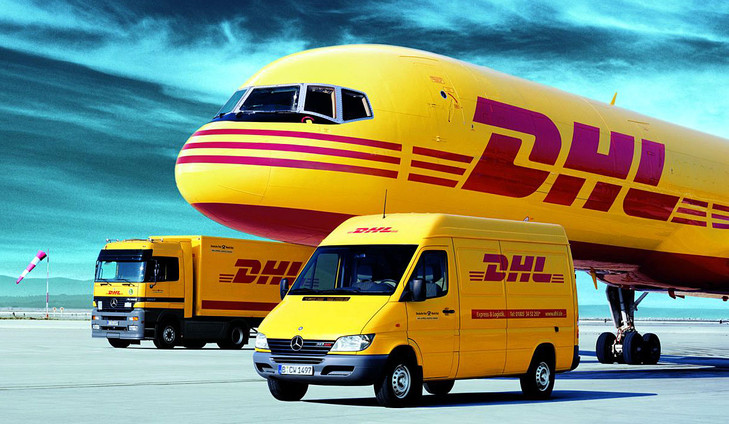DHL forwarding looks to a better year ahead after a ‘transitional’ 2015
09 / 03 / 2016

DHL Global Forwarding is hoping a new IT system will help improve performance in 2016 after it recorded declines in airfreight volumes, revenues and an earnings before interest and tax loss (ebit) in 2015.
Deutsche Post DHL’s Global Forwarding, Freight division recorded a 0.2% decline in revenues to €14.9bn, while ebit declined to a loss of €181m compared with a €293m profit in 2014.
It said the revenue decline was down to its selective market strategy, weak market conditions resulting in lower pricing and lower fuel surcharges. However, revenues were positively affected by exchange rates.
Its ebit loss was primarily down to the €336m it wrote off because of its decision to abandon the implementation of its troubled New Forwarding Environment (NFE) IT system.
Airfreight volumes for the year declined by 7.3% on 2014 levels to 2.1m tonnes. It blamed the decline on its selective market strategy, where it concentrates on more profitable customers, and general market weakness, which registered a slight decline in demand.
Its selective market strategy did manage to improve gross profitability for the year.
Meanwhile, other turnaround measures, including "re-empowering staff", resulted in an improvement in ebit during the fourth quarter which climbed to €99m from €71m in 2014. Around €13m of this improvement was down to the roll back of its NFE programme.
“To counteract the decrease in margins, we withdrew from some major transactions. The measures we implemented to increase profitability contributed to a 1.2% improvement in gross profit in the reporting year,” it said.
Looking ahead, Deutsche Post is confident that its new plan to upgrade to its IT system will help improve performance in 2016.
The new plan will use a step-by-step replacement of systems. This will rely on a “flexible IT architecture” that enhances existing systems whilst incorporating advanced “off-the-shelf ” solutions that have been proven within the freight forwarding sector.
“The goal is to develop business-centric IT that best supports progress in our operating performance,” Deutsche Post said.
“Better capture, display and management of processes are expected to increase transparency, whilst an electronic document management system will reduce paper-based workflows.”
Deutsche Post DHL chief executive Frank Appel said: “On the one hand I can say that our selective market strategy has been successful; we witnessed a good trend in our gross profit in second half of the year. We did accept that this went at the expense of volumes but now we are ready to grow again.
“Now that we have initiated the turnaround here, we have a clear idea of how to stop the NFE programme and replace it with something new. We call it the IT renewal programme.
“We are currently working on a proof of concept for a transportation management programme and there are other projects we are going to roll out within the company.
“Therefore we will not only witness a major improvement in our operating performance but our IT renewal will come a long way. We are confident we will see the first positive effects of IT renewal this year.”
Looking ahead, the company said of the airfreight market: “In 2016, we anticipate developments in the airfreight market to follow a similar trend to that of the reporting year.
"In light of the fact that fuel prices remain low, freight carriers are likely to expand capacities with new widebody passenger planes and additional cargo aircraft, especially to smaller destinations.
“The most important drivers of demand will be growth in the Chinese consumer market and transports of perishable food products.”
Appel was later asked how the search for a new leader of the forwarding business was progressing after Roger Crook left the role last year.
He refused to comment on the search to fill the role but he said he was happy to continue to be responsible for the business.
Appel was also asked why it took two weeks for the company to deny rumours that it was in talks with Japan Post to sell its forwarding division.
“It took time to deny simply because it was wrong," he said. "We then decided at some stage to comment even though it is not our policy to comment on such rumours.
“I do not know how this rumour came into the world and how it came into being, I do not know who spread it and who even had the idea.
“I don’t know where this rumour came from, it is just so absurd. And because it is so absurd we didn’t comment initially.”
With regards to possible acquisitions, Appel said there were no plans for major acquisitions at the moment as there was no need.
However, it may make minor acquisition in the future, but it remains to be seen.
Deutsche Post also took the opportunity to put to rest rumours it was considering selling its share in Indian domestic all-cargo airline Blue Dart, saying there was no truth to the gossip and it saw the Indian market as fantastic.
During the year, its express division saw revenues climb by 9.4% year on year to €13.7bn and ebit was up 10.4% on the previous year to €1.4bn.
It said the improvement was down to strong time definite international shipment growth and effective yield management.
The overall Deutsche Post company, including its parcel and mail business, recorded a 4.6% increase in revenues to €59.2bn, ebit slipped 18.7% to €2.4bn and net profit was down 21% to €1.7bn.
It said the profit declines were largely a reflection of one-off expenses, including the charge largely attributable to the write-downs and provisions recognised in connection with the IT renewal for its forwarding business.














